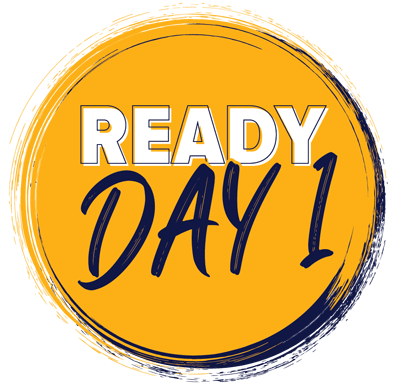Major in Sociology
Bachelor of Science in Sociology
Format: Online or in-person on the Statesboro or Armstrong Campus
Credit Hours: 124
Why Sociology?
Sociology gives you the eyes to see the hidden social forces that affect the course of our lives and our communities. Sociology also gives you the scientific methods to understand and engage with the issues of our time: race, poverty, inequality, globalization, immigration, environmental change, gender, power, and many others. With both of these in hand, our graduates are prepared to grapple with social problems that affect the entire globe or just one family.
Do you want to see the world more fully? Do you want to create change in your community, in business, and in the world? Then start your journey by majoring in sociology.
What Can I Do With a Sociology Degree?
Sociology graduates can seamlessly transition into social service careers, working with governmental organizations and non-profits. The skill set that sociology provides is highly prized within the business sector for careers in human resources, public relations, and marketing. Sociology also provides a strong academic base for careers and advanced degrees in law, medicine, social work, and counseling.
Over the course of your education you will develop many “real world” skills including how to ask research questions, find existing evidence, collect your own data, and analyze it with quantitative and qualitative methodologies. Students who focus their classes on social services will develop basic counseling skills, techniques for program evaluation, and the tools to analyze how public policy affects individuals, families, and communities. The American Sociological Association also has some excellent resources on the job prospects and career opportunities for our graduates.
Ready to Apply?
Or, you can:
Program Requirements
In addition to a strong liberal arts base of classes, our majors are required to take 39 hours of sociology courses. All of our graduates are required to take Introduction to Sociology (1101), Sociological Theory (3431), Sociological Research Methods (3434), and our senior capstone course Senior Seminar (4630).
For students who want to focus their coursework on social services they are also expected to complete: Introduction to Social Services (2232), Practice Skills (3231), Group Dynamics (5140), Social Welfare Policy & Services (4232), Human Behavior and the Social Environment (SOCI 3232), Aging Programs and Policies (SOCI 3233), and Child Welfare Policy and Family Services (SOCI 4231)
Read about our Student Learning Outcomes
Select Your Emphasis
Sociology
This emphasis focuses on developing your “sociological imagination” (i.e. your ability to critically analyze the individual within their larger social setting) as well as hone your researcher skills. For students who want to focus on growing as a scientific researcher this course focus provides you with extensive opportunities and a lot of flexibility to research your particular area of interest.
This is our most broad and inclusive course focus. There are no specialized classes that are recommended for this focus, beyond the base program requirements. If you want to sample a variety of courses or if you would like to tailor your coursework to your individual interests, then this may be the right choice for you.
Social Services
For students interested in social services and social work with individuals, children & families, groups, and communities, the Social Service Track in Sociology offers the opportunity to gain knowledge in social service programs and policies across the lifespan, as well as skills in counseling strategies and working with various social service agencies.
With a social service course focus you will be ready to start down a career path to becoming a program director, non-profit administrator, child protection worker, marriage & family specialist, mental health case manager, victim’s advocate, prevention specialist, community educator, volunteer coordinator, public policy analyst, and many others. If you are interested in earning a Master of Social Work or continuing your education in counseling, this track is ideal.
Course Sequence
Minor in Sociology
A minor in sociology is a perfect complement for almost any major. Our minors develop their ability to critically think about the world they live in. The training you will gain as a social researcher will serve you well throughout your career and the skills you develop in your health & social service classes will empower you to improve the lives of people in your community. Many of the key issues you’ll experience throughout your life and career are social in nature. A minor in sociology will give you the tools you need to make informed decisions and create positive social change in your community.
Requirements:
- SOCI 1101 Introduction to Sociology
- 15 hrs of upper-division Sociology courses (3000 or above)
How do I change or add a minor?
Changing or adding a minor is easy. Follow these simple directions. However, it’s best to talk with your current advisor and check DegreeWorks to see how switching/adding this minor will impact your path to graduation.
Do you have questions?
If you have any questions or if we can help you transition to a sociology minor simply contact SAM@georgiasouthern.edu, call the Department office at 912-478-5443, or stop by our office in the Carroll Building, Room 1003.
How do I change my major?
Contact your academic advisor for help changing your major. If you have questions or need help, contact us at SAM@georgiasouthern.edu or by phone 912-478-5443.
Questions? Contact Us

Dr. Nathan Palmer
Sociology Program Coordinator
912-478-7897
npalmer@georgiasouthern.edu
Related Programs
Last updated: 8/3/2023
